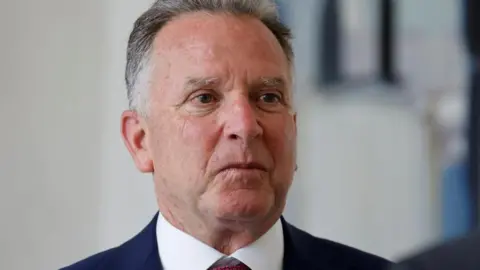Putin Declares Easter Truce, While Ukraine Expresses Distrust

In a surprising turn of events, Russian President Vladimir Putin has announced a temporary halt to military operations in Ukraine, declaring a so-called "Easter truce" that is set to last for 30 hours. This truce, which he stated would last until 22:00 BST on Sunday (00:00 Moscow time), has sparked skepticism and criticism from Ukrainian officials, who question the sincerity of Putin's intentions.
Putin's declaration came during a meeting with his chief of general staff, Valery Gerasimov, where he emphasized that the ceasefire was based on "humanitarian considerations." He instructed Russian forces to prepare for potential violations of the truce, indicating a lack of genuine commitment to peace. "We assume that Ukraine will follow our example," he stated, while simultaneously warning troops to remain vigilant against any perceived provocations from the Ukrainian side.
Ukraine's President Volodymyr Zelensky has been quick to respond to Putin's announcement. He accused the Russian leader of treating human lives recklessly, pointing out that Russian drones were detected in Ukrainian airspace just moments before the truce was to take effect. This observation led Zelensky to assert that Putin's actions do not align with his words, demonstrating a troubling inconsistency in his approach to the conflict.
Moreover, Ukraine's Foreign Minister, Andriy Sybiha, reiterated the nations skepticism regarding Putin's overtures for peace. He highlighted how Ukraine had already agreed to a proposal from the United States for a longer 30-day ceasefire, contrasting it with Putin's brief 30-hour offer. Sybiha's remarks on the social media platform X underscored the historical pattern of broken promises from the Kremlin: "Unfortunately, we have had a long history of his statements not matching his actions. We know his words cannot be trusted, and we will look at actions, not words," he stated.
This latest announcement of a truce is not without precedent; a similar ceasefire was attempted during Orthodox Christmas in January 2023, but it ultimately collapsed as both sides failed to reach an agreement. Many observers remain skeptical that this latest initiative will yield any meaningful reduction in hostilities.
As the international community watches closely, the situation remains precarious, with both sides entrenched in their positions. Analysts suggest that such ceasefire declarations often serve as tactical maneuvers rather than genuine efforts towards lasting peace, leaving many to question whether this Easter truce will be any different.





























